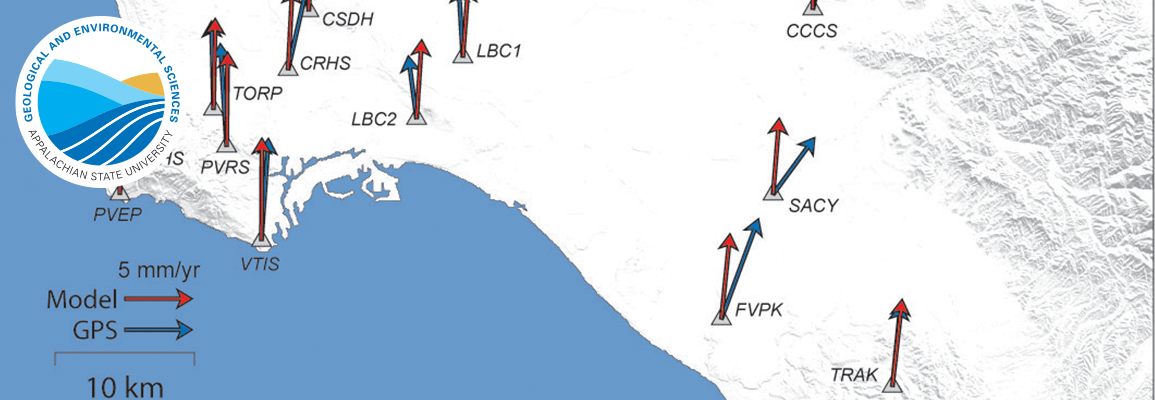One of the benefits of majoring in the Geological and Environmental Sciences at Appalachian is the opportunity to conduct independent research with one or more faculty members in the department, using state-of-the-art research facilities. Students in our department have access to facilities, field sites, and research opportunities that are unparalleled for undregraduate students.
Research Facilities
Our undergraduates have access to instrumentation and computational facilities that one would typically find in a PhD granting institution, as well as space for independent work (see Departmental space policy for details).
Research Areas
- Field Research - Where do we go and what do we do?
- Laboratory and Quantitative Research - What analytical methods do we use?
- Tectonics Research - How does the earth move?
- Water Resources Research - What processes affect water supply and quality?
- Paleontology Research - What do fossils tell us?
- Earth Surface Processes Research - What do landforms tell us? How do humans influence landscapes?
- Mineralogy, Petrology and Geochemistry Research - What can minerals, rocks, sediments, and water chemistry tell us?
- Records of Climate Change Research - How is Earth's climate recorded in minerals, rocks, sediment, water, and ice? How has it changed through time?
Examples of Student Research Projects in aGES:
- Senior thesis presentations
- Peer reviewed research papers with student authors and co-authors
- Student conference presentations
- Our students present at a variety of regional, national, and international geoscience and environmental science conferences - historically, these posters are hung up on the walls on the ground floor of Rankin Science West, but due to COVID-19 we are now providing a virtual research showcase in addition to physical posters
- 2020 Southeast GSA Virtual Research Showcase (conference canceled due to COVID-19)
Participating in research with aGES:
- Research is a privilege, not a right. Supervising student research is extremely time- and resource-intensive for faculty.
- Be willing to be flexible about your research topic/field, as your first choice of research group may not be available.
- Some research groups will require pre-requisite classes before joining; others will not.
- Graduate schools care more about research experience than your specific undergraduate research topic.
- You do not need to be a straight A student. But you do need to be doing reasonably well in your classes, and keeping up with all academic work, have good time management skills, and not have too many extracurriculars that would interfere with doing research.
- You do need be aware of the significant time commitment outside of your regular classes that is required for independent research.
- Most students start out on a volunteer basis, and when they have demonstrated that they have the focus, time-management skills, and drive to do independent research, they can be supported by grants or assistantships, or undertake a senior thesis.
- You can get academic credit for doing research through:
- independent studies GES 2500, GES 3500, and GES 4500
- senior thesis GES 4501 and GES 4510
- You can get paid to do research through:
- grants to invididual faculty members
- University Research Assistantships thought the Office of Student Research
- University Research Assistantships through aGES
Student Research in AGES
Internships and Employment
We strongly encourage students to work with other scientists through research internships or summer jobs. Recently, our students have worked at the Smithsonian, the North Carolina Geological Survey, the United States Geological Survey and regional industries including environmental consulting and mining.
